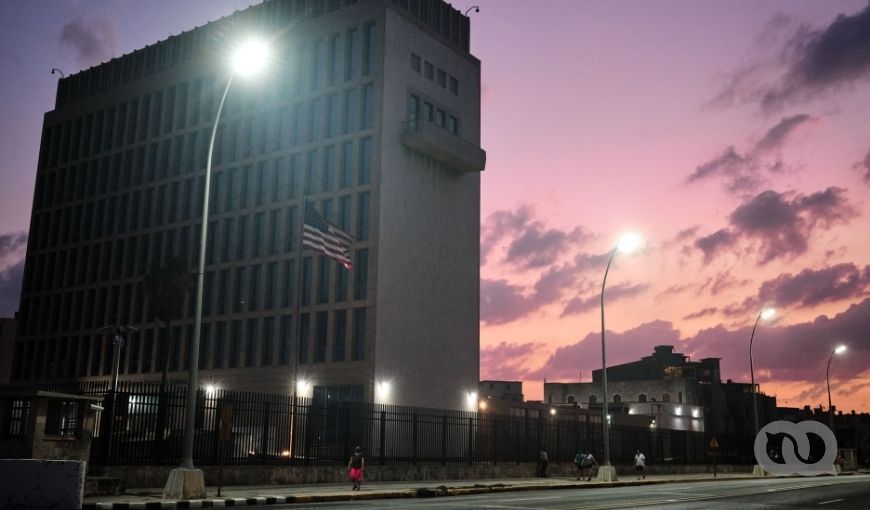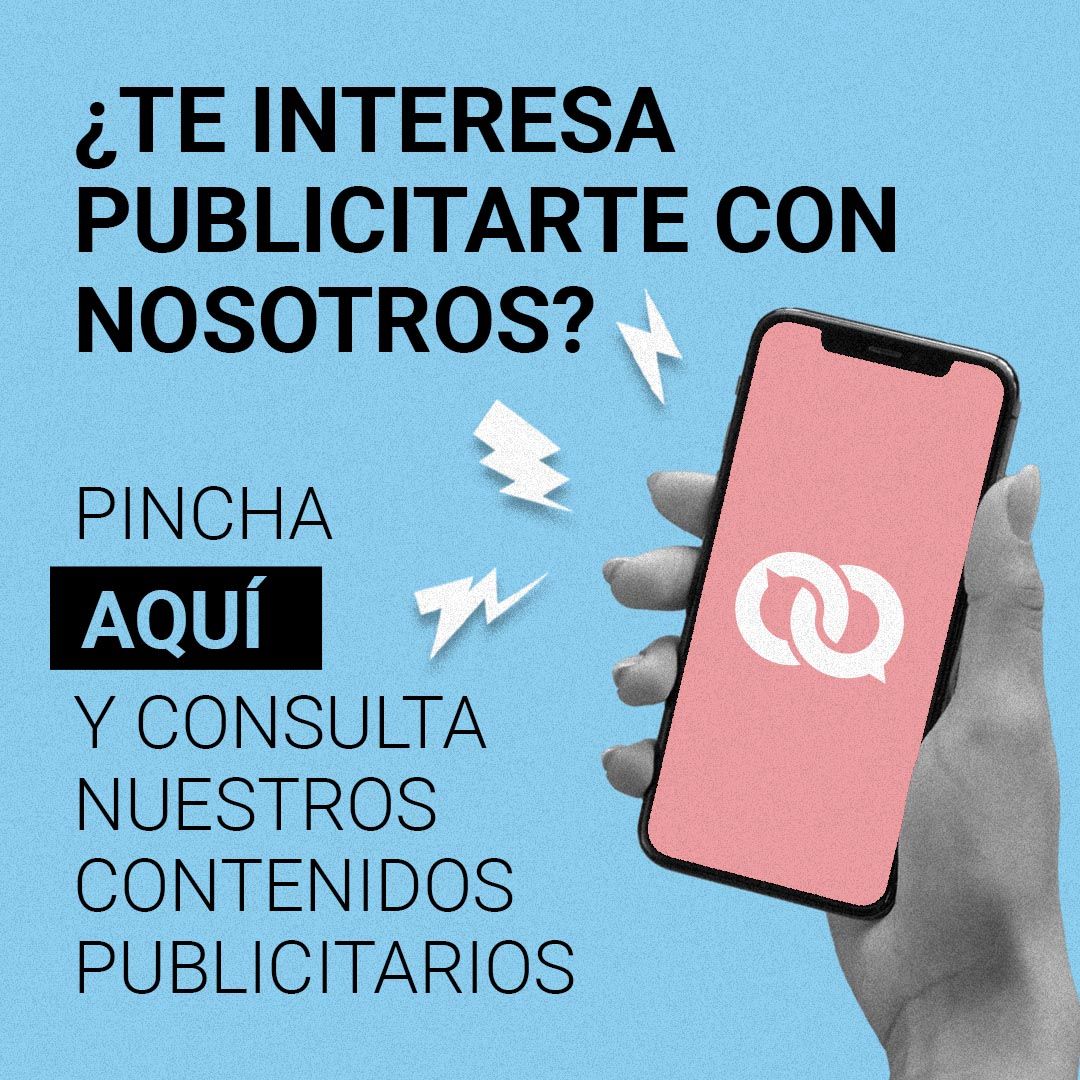Vito’s days are numbered. He has a very rare form of cancer and could die from it tomorrow. But he could also have many more days to live if he can access treatment. That possibility keeps his hopes alive.
Victor Alfonso Cedeño, or Vito, is a 38-year-old independent audiovisual producer. He creates animated drawings and short fiction clips. People know him for his series Dany y el Club de los Berracos. He’s also known for the cartoon character he created – Yesapin Garcia, a Cuban preteen.
Two years ago, Cedeño was diagnosed with chondrosarcoma, a rare cancer which causes tumors in the pelvis, hip and shoulders.
In September 2020, he made his diagnosis public. At that time, the doctors at Cuba’s National Institute for Oncology and Radiobiology informed him his case was inoperable. They said they could do nothing more for him.
Vito then centered his hopes on the Sylvester Comprehensive Cancer Center of the University of Miami Health System. There, they offer personalized attention and conduct clinical tests to find medications that could combat sarcoma.
Vito was approved for admission. However, he’s been unable to get his special visa request processed, so he could travel to the United States. Since October 2017, the consular services at the US Embassy in Cuba have been suspended.
Sonic attacks an excuse for closure
The US embassy was closed to the public due to alleged sonic attacks against US diplomats. These allegations have remained unproven. However, the incident served as an excuse for the Trump Administration to reduce personnel at the Havana Embassy by 60%.
That decision meant the automatic suspension of all visa processing. It also suspended services linked to the Cuban Family Reunification Program (CFRP).
Since 2017, consular services for the CFRP were relocated to the South American country of Guyana. Requests for non-immigrant visas were redirected to other US embassies or consulates outside Cuba.
Days before this decision, Bruno Rodriguez, Cuba’s Foreign Relations Minister, met with former Secretary of State Rex Tillerson. The Cuban official urged the US to wait for the investigations to be concluded, and “not to make hasty decisions”. Nonetheless, shortly afterwards the partial closure of the diplomatic seat was announced.
The near paralysis of all embassy dealings hasn’t only affected separated Cuban families. It also struck a blow to many Cuban self-employed workers. These merchants offered food, printing, or paperwork services to the hundreds of people who came to the embassy daily. From one day to the next, those workers had to adjust to a new situation. Their old jobs were gone, as a video on the Cuban television station documented.
The suspension of consular services has also hurt academic, cultural and athletic exchanges. Raul Fornes, of Cuba’s National Institute for Sports, Physical Education and Recreation, spoke about this issue during a virtual forum. He stated that it’s very difficult for Cuban athletes to access visas to participate in competitions held in the US.
Fornes explained that Cuba has spent US $35 thousand dollars in visa requests. They’ve been forced to channel these through the US Embassies in Mexico and the Dominican Republic. “Had we been able to process these requests in Havana, the amount would be reduced to US $7,200.”
The suspension of consular services added on to the restrictions of the US blockade. Together, they’ve significantly limited the exchanges between university sports programs in both countries, Fornes commented.
Citizens of the US have also suffered consequences over the past few years. Passport requests or renewals are no longer processed in Cuba. Nor can US citizens living in Cuba access notary services or birth certificates for US citizens born outside the country.
US residents face additional difficulties transmitting immigration petitions for their relatives. For those who lose their residency cards or reentry permits, the Havana Embassy no longer processes requests for travel documents. This implies an extended stay in Cuba, while their documents are processed and sent by mail to other countries.
Vito’s case
null
With characteristic calm, Vito told us that the two surgeries he underwent in Cuba have affected some of his internal organs. There’s no treatment or medications for his case in Cuba, only palliative treatments.
Dr. Jonathan Trent, one of the best specialists in the US, has agreed to treat him.
“They studied the biopsies and tissue samples that we sent. They were thus able to determine that I have a conventional subtype of chondrosarcoma,” Vito stated. “A multidisciplinary group of specialists met and decided to proceed with an oral medication. They prescribed an inhibitor medication called Pazoparib or Votrient.”
Vito attends his consultations via Zoom. Each one costs $150, which he’s been able to pay thanks to crowdfunding. The medications are free through a program for low-income people.
He has friends that fly to Havana and bring him the pills he must take each month. Dr. Trent insists, however, that Vito’s presence in Miami is essential for a closer study of his case. If the medication treatment proves ineffective, he’ll need to be included in a clinical test. It’s impossible to fully treat his cancer at a distance.
“Dr. Trent believes that my physical presence in Miami is necessary for case studies and safe follow-up. They also need me there to control the secondary effects on my vital organs. They need to monitor me, make adjustments, and carry out more intensive and detailed tests. That’s how they can determine if the treatment is working,” explained Vito.
Seven months ago, he and his wife applied for a visa to go to the US. Their file has still not been reviewed because the embassy isn’t offering these consular services.
He knows that his case is literally a matter of “life or death”. However, he commented that being far from those close to you is also painful. He thinks of the people who are trying to reunite with their families.
“Restoring consular services would facilitate the free flow of people with different interests. It would expedite work contracts, family visits, exchanges between the two countries, benefits for those like me,” Vito enumerated.
“Collateral Damages”
The pandemic caught Celso Hernandez in Guyana. He was stranded there for nearly six months, waiting for Copa Airlines to resume flights. He’d gone there to request a US visa, so he could visit his son.
“I’d prepared for the expenses of paperwork, airfare and a stay of about 15 days. Then, I had to add rent payments for the entire time I was in Guyana. Plus, the purchase of a new ticket from Caribbean Airlines to be able to return to Cuba,” noted Celso.
During those six months, the 65-year-old Havana resident had to deal with his diabetes and the uncertainty of his return. Worse yet, his trip turned out to have been in vain; to his disappointment, his visa application was denied.
“I just wanted to return to Havana. My son lost his job and then had to figure out how to get money to sustain me in Guyana. If I’d been able to access the services in Havana, none of this would have happened,” Celso lamented.
The cancellation of consular services and the resulting delay in processing requests has kept some families separated for years. Some lost the opportunity to say goodbye.
Maria Gutierrez is known by her friends as “Tatica”. Her daughter “started her paperwork” in 2014. “Between paying lawyers and other costs, the stress got so great that my daughter got alopecia. Her hair fell out,” Tatica stated.
“That’s the worst thing that’s happened to us, in addition to the uncertainty and the pain of being far away. But during this battle, I’ve met many who didn’t even get to say goodbye to their loved ones.”
Tatica runs through a quick list of people she knows who are waiting like her. Carlos hasn’t been able to meet his two-year-old granddaughter. Yudaimis has been left all alone in Cuba. Martha couldn’t accompany her daughter when she was seriously ill with COVID-19. Roger hasn’t seen his father in ten years. Gleydis made her way through the Central American jungles because her husband’s petition took too long. “When you’ve been trying to do this for several years, you hear stories that break your heart.”
In 2019, given the delays in her case, Tatica traveled to Barbados to request a US tourist visa. The year before, she had also tried this in Panama.
“It costs a lot – on average about US $500 dollars – to travel to other countries for consular business,” Tatica noted. “After that, the delay in resolving the cases also feeds your desperation.”
Cuban families mobilize
In 2020, Florida International University held their annual “Cuban survey”. This is the oldest research project following up on the opinions of the South Florida Cuban community. Survey results indicated that 58% of those participating were opposed to the suspension of visa and CFRP processing in Havana.
Joe Biden’s electoral victory has brought renewed hopes for a possible embassy reopening. For the moment, though, the current administration has announced that: “A change in Cuban policy isn’t among our priorities.”
Since the suspension of consular services at the US embassy in Havana was announced, Cubans haven’t stopped mobilizing. They’ve done what they could to request the resumption of local consular proceedings. They’ve collected signatures, organized caravans, sent letters and carried out other initiatives over the past few years.
Among the more recent attempts is the call for a permanent Twitter campaign, under the hashtags #ReopenUSHavEmbassy, and #CFRP.
Cuban-American professor Carlos Lazo has collected over 21,200 signatures in his “Puentes de Amor” [“Bridges of Love”] campaign. This campaign asks for the full reopening of the US Embassy in Havana. “In order to normalize the issuance of visas and other consular services,” as well as the restoration of the CFRP.
The Center for Democracy in the Americas and the Washington Office for Latin American Affairs recently issued a report. They underscored that reestablishing relations with Cuba would be an easy matter.
“The sanctions Trump imposed on Cuba were imposed by executive order. Therefore, they can be reversed with the current president’s signature. In fact, most of them could be reversed with a single order restoring the Cuban Assets Control Regulation (CACR) to its status on January 20, 2017,” the document indicated.
At the beginning of March, 80 democratic congressional representatives sent a letter to President Biden. They respectfully urged him, “to speedily reverse the cruel policies of the Trump Administration against the Cuban people.” The same letter asked him, “to resume the mutually productive dialogue with the Cuban government.”
“With one stroke of a pen, you can help distressed Cuban families and promote a more constructive focus. This involves returning to the policies of compromise and normalized relations of the Obama-Biden Administration,” the document concluded.
null
On Sunday, March 14th, a “Prayer meeting for the Cuban family” was held. Dozens of people gathered at Miami’s “Ermita de Caridad” sanctuary, to ask for the reunification of Cuban families.
Vito needs a prayer as well. An online medical consultation attended by a group of 5 or 6 people, including an interpreter, isn’t enough. It’s not enough that his doctors at Havana’s National Institute for Oncology and Radiobiology follow Dr. Trent’s recommendations. In line with these, they order tests every 15 days and a bimonthly MRI.
“If the treatment proves ineffective, more intensive tests must be done. These could offer a greater level of detail, to be able to change to a stronger treatment. Or, to consider enrolling in clinical tests,” Vito explained. “But for that, I must inevitably be present, there in the United States.”
This article was translated into English from the original in Spanish.


If you believe that our journalism is important for Cuba and its people, we want you to know that this is a critical moment.
Behind each publication there is a team that strives to ensure that our products meet high quality standards and adhere to professional and ethical values.
However, to keep a close watch over government, demand transparency, investigate, analyze the problems of our society and make visible the hidden issues on the public agenda is an effort that requires resources.
You can contribute to our mission and that is why today we ask for your help. Select the way you prefer to send us a donation.









comments
We moderate comments on this site. If you want to know more details, read our Privacy Policy
Your email address will not be published. Mandatory fields are marked with *